Disclosure: This article contains affiliate links. We may earn a commission from purchases at no extra cost to you, which helps our travel content.
As someone who's spent decades documenting how sports reflect cultural identity, I've learned that to truly understand a place, you must immerse yourself in its rhythms, traditions, and daily life. Lagos—Nigeria's pulsating commercial heart—offers precisely this opportunity for the curious traveler. During a recent week-long visit while researching traditional Nigerian games for my upcoming book, I discovered a city of striking contrasts: gleaming high-rises alongside historic neighborhoods, ancient traditions thriving within a rapidly modernizing metropolis, and an infectious energy that seems to power everything from market haggling to midnight dance floors. What follows are seven experiences that cut through the tourist veneer to reveal the authentic soul of Lagos—a city where, much like a well-played cricket match, the beauty lies in the subtle details and unexpected moments that unfold when you're patient enough to observe.
Navigate the Controlled Chaos of Makoko Floating Village
The wooden canoe glides through narrow waterways as children wave from stilted homes and women smoke fish on floating platforms—welcome to Makoko, often called the 'Venice of Africa.' But unlike its Italian counterpart, tourism hasn't sanitized this centuries-old fishing community that stretches across Lagos Lagoon.
My guide, Emmanuel, a third-generation Makoko resident, navigated our boat with the precision of a batsman anticipating a bowler's delivery. 'We've lived on water for generations,' he explained, 'long before there was a Lagos as you know it.'
What struck me wasn't just the ingenuity of this floating world—schools, churches, markets, all built atop the water—but how the community has developed sustainable practices out of necessity. Fishing nets are repaired rather than replaced, boats are built from reclaimed wood, and nothing goes to waste.
While controversial (the government has attempted demolitions in the past), Makoko offers a window into resilience and adaptation. As we passed a floating football pitch—complete with goals made from fishing nets—I watched young boys display ball-handling skills that would impress professional coaches, a reminder that play and sport emerge organically even in the most challenging environments.
The experience requires respect and sensitivity. This isn't poverty tourism; it's an opportunity to understand a traditional way of life increasingly threatened by urbanization and climate change. I arranged my visit through the Makoko Community Development Association, ensuring fees directly benefited residents and conservation efforts.
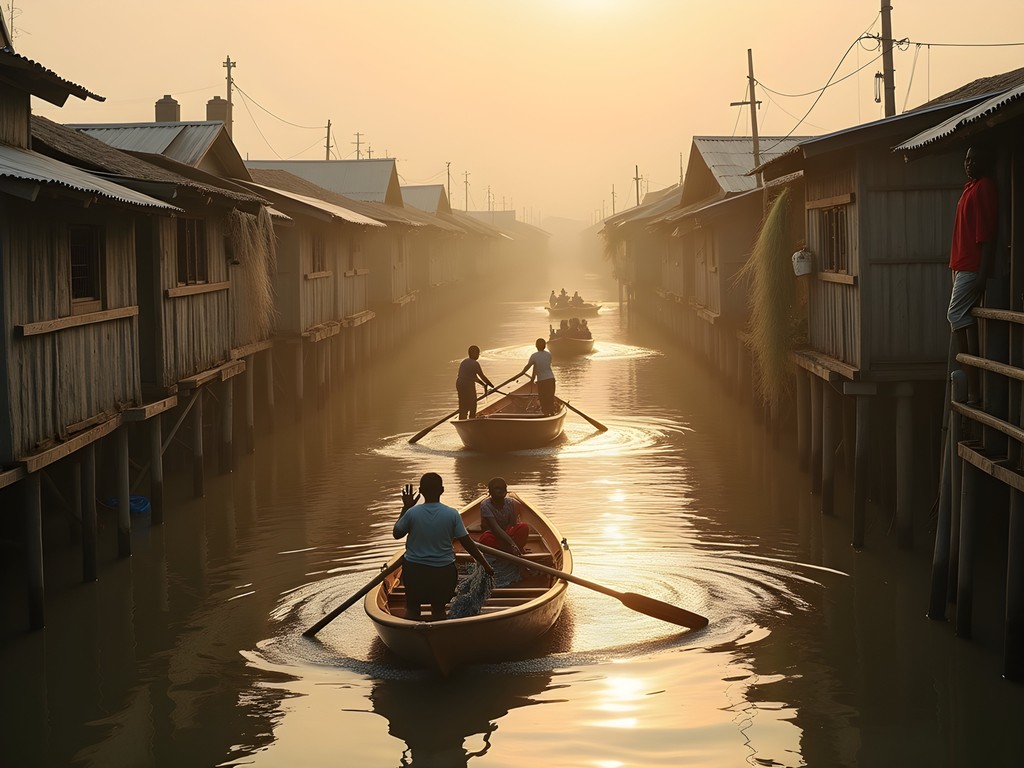
💡 Pro Tips
- Book through community organizations like the Makoko Community Development Association rather than commercial tour operators
- Morning visits provide the best lighting and glimpse into daily activities
- Bring a waterproof bag for your camera and valuables
Experience the Rhythmic Soul of Nigeria at The New Afrika Shrine
The legacy of Fela Kuti—musician, activist, and creator of Afrobeat—lives on at The New Afrika Shrine in Ikeja. Unlike the polished nightclubs of Victoria Island, this open-air venue pulses with raw authenticity, carrying forward the political consciousness and musical innovation of Nigeria's most famous musical export.
I arrived on a Thursday night for the Felabration Rehearsal Session, where Femi Kuti (Fela's son) and the Positive Force band were preparing for an upcoming performance. The crowd—a fascinating mix of locals, expatriates, and travelers—moved as one organism to the hypnotic brass section and driving percussion.
'In cricket, we call it being in the zone—that perfect state where everything flows,' I explained to my companion, a fellow journalist from Wellington. 'This music creates that same state, but collectively.'
What makes the Shrine special isn't just the music but the atmosphere of cultural preservation and resistance. Photos of pan-African leaders line the walls, traditional ceremonies occasionally punctuate performances, and the spirit of Fela's compound—known as the Kalakuta Republic—lives on.
I found myself drawn into conversations about Nigerian politics, conservation challenges in the Niger Delta, and the evolution of West African music with university students, artists, and activists. These exchanges, fueled by Star beer and the occasional palm wine, proved as valuable as any formal cultural tour.
For those concerned about late nights, I recommend taking a reliable taxi service. My portable power bank proved essential for keeping my phone charged throughout the night—especially important for arranging transportation back to my accommodation.
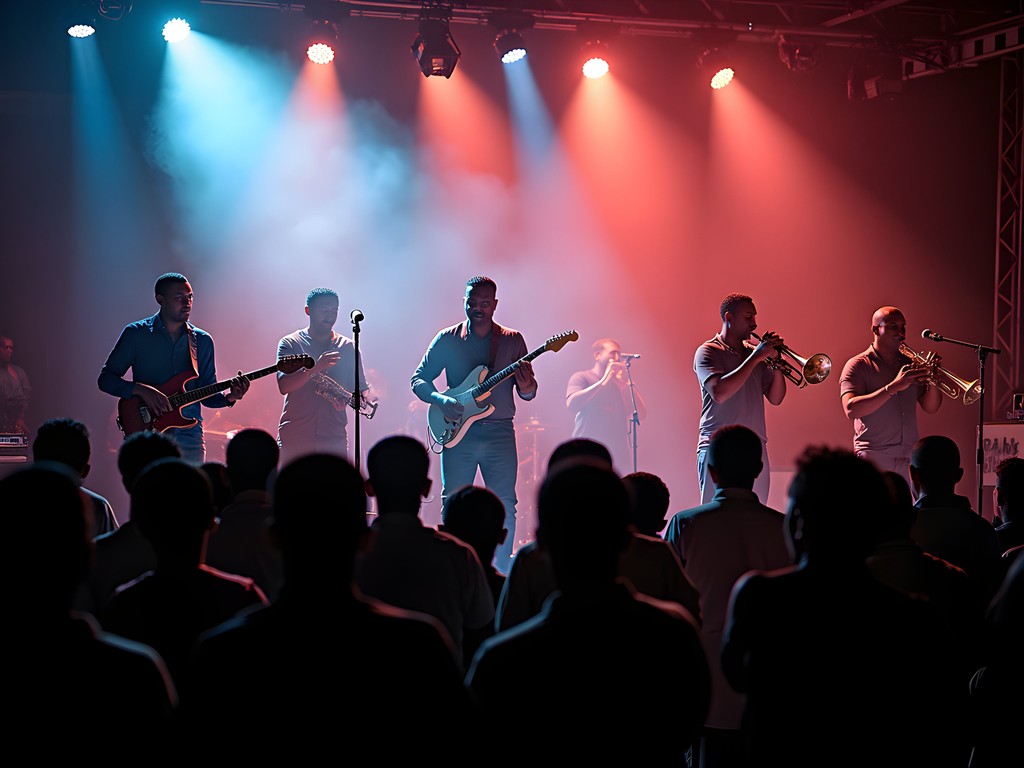
💡 Pro Tips
- Thursday's Felabration Rehearsal Sessions offer a less crowded experience than weekend shows
- Arrive by 9pm to secure good standing spots near the stage
- Use ride-hailing apps like Uber or Bolt rather than street taxis for night transportation
Decode the Language of Textiles at Lekki Arts & Crafts Market
In my travels documenting sporting traditions across continents, I've learned that material culture—the objects people create—often tells stories words cannot. Nowhere is this more evident than at Lekki Arts & Crafts Market, where Nigeria's artistic heritage is displayed through intricate woodcarvings, beadwork, and most impressively, textiles.
Unlike the tourist-oriented Lekki Market, this collection of workshops and stalls showcases artisans actively practicing their crafts. I spent an afternoon with Adebayo, a third-generation adire (indigo-dyed cloth) maker from Abeokuta, who demonstrated how patterns communicate everything from family lineage to proverbs and historical events.
'This pattern here,' he explained, pointing to a series of concentric circles, 'represents the ripple effect of our actions across generations. We call it omi ripples—water ripples.'
What fascinated me was learning how these traditional techniques are being reimagined by young Nigerian designers creating contemporary fashion with cultural foundations. Several stalls featured modern interpretations of adire and aso-oke fabrics transformed into stunning clothing and home décor.
The market also offers an opportunity to support conservation efforts through responsible purchasing. Several collectives use sustainable materials and traditional techniques that maintain cultural knowledge while minimizing environmental impact. I purchased a handwoven basket made from reclaimed plastic that supports a women's cooperative in eastern Nigeria.
While photography is generally permitted, always ask permission before taking photos of people or their work. I captured stunning textile details with my compact camera, which handles the market's challenging lighting conditions beautifully without being as intrusive as a larger DSLR.
Be prepared to haggle—it's expected—but do so respectfully, recognizing the skill and time invested in handcrafted items. As a rule of thumb, I start at about 60% of the initial asking price and work toward a mutually agreeable figure.
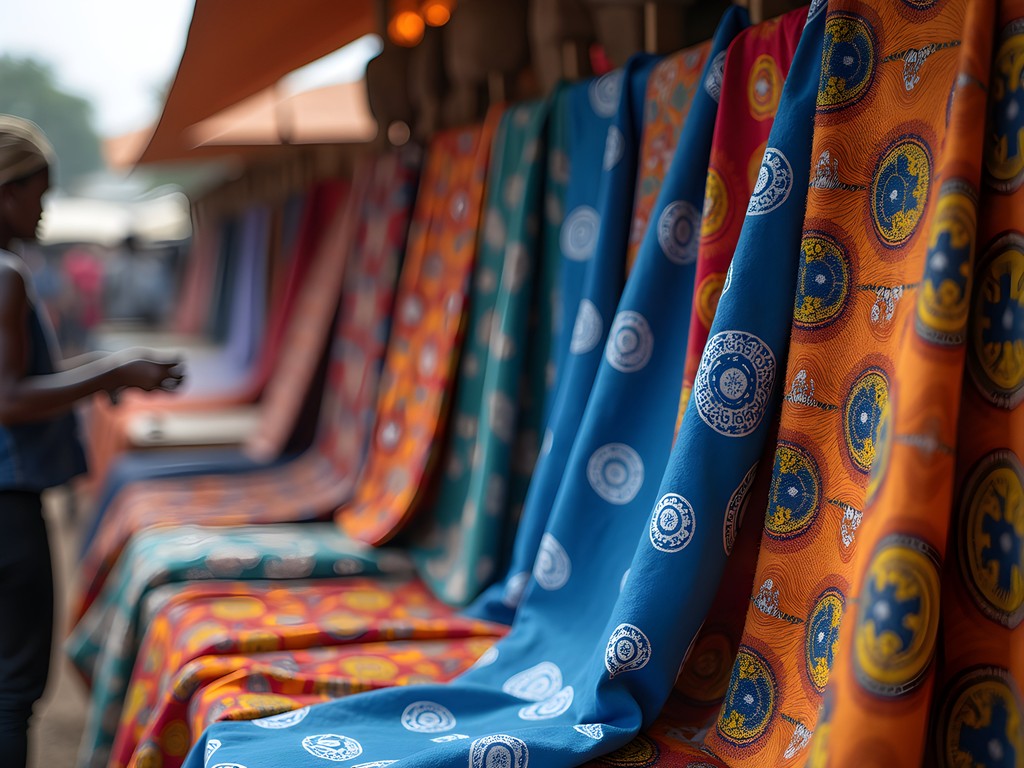
💡 Pro Tips
- Visit on weekday mornings to catch artisans at work and avoid weekend crowds
- Bring small denominations of naira for easier transactions
- Look for workshops where you can learn basic techniques like adire (indigo dyeing) or beadwork
Witness Living History at the Eyo Festival
If you're fortunate enough to visit Lagos during an Eyo Festival—a rare ceremonial occasion that occurs only to mark significant events or honor notable deceased figures—you'll witness one of Nigeria's most profound cultural expressions. As a sports journalist accustomed to documenting ritualized competitions, I found striking parallels between this ceremony and the symbolic tournaments I've covered worldwide.
The festival transforms Lagos Island as hundreds of men dressed entirely in white, their faces concealed behind hats with colorful ribbons, parade through the streets carrying staffs (opambata). These figures, called Eyo masquerades, represent the spirits of the departed and are organized into five principal lodges, each with distinct roles and identities—not unlike the specialized positions in team sports.
I attended the festival honoring a prominent Lagos elder last winter, having arranged viewing through my hotel's cultural concierge. The procession began at Iga Idunganran (the palace of the Oba of Lagos) and wound through streets cleared of vehicles for the occasion.
'The Eyo don't simply walk—they dance,' explained my guide, Folake, a cultural anthropologist from the University of Lagos. 'Each step and staff movement carries meaning developed over centuries.'
What struck me most was how the entire community participated—not just as spectators but as active maintainers of tradition. Elders enforced protocols (no whistling, no wearing of red, no crossing the path of an Eyo), while children learned through observation and peripheral participation.
Since the festival follows no fixed calendar, planning a trip around it is challenging. However, major hotels and cultural centers usually receive advance notice. I recommend following the Lagos State Tourism social media accounts for announcements.
For comfortable viewing of this day-long event, I relied on my packable hat for sun protection and a collapsible water bottle to stay hydrated during the hours-long procession.
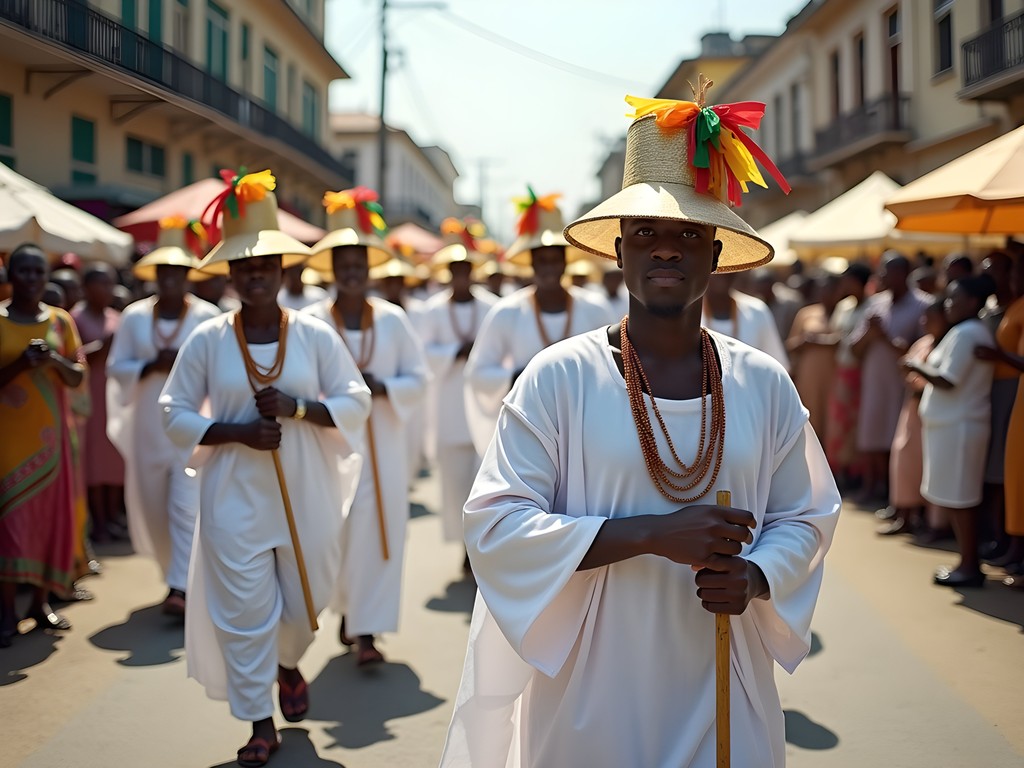
💡 Pro Tips
- Follow traditional protocols: no red clothing, no crossing an Eyo's path, no pointing or whistling
- Position yourself near Tinubu Square for excellent viewing opportunities
- Arrange viewing through established cultural organizations or hotel concierges for the best experience
Taste Nigeria's Culinary Heritage at Bogobiri House
Nigerian cuisine, like its sporting traditions, reflects regional diversity, historical influences, and cultural adaptation. While Lagos offers everything from street food to high-end restaurants, I found Bogobiri House in Ikoyi provides the perfect introduction to the country's culinary landscape in an atmosphere conducive to cultural exchange.
This boutique hotel and cultural center hosts weekly food events showcasing different Nigerian cuisines—from the yam-based dishes of the east to the pepper soups of the Niger Delta. I attended their Thursday 'Taste of Nigeria' evening, where a rotating selection of regional specialties is served alongside live acoustic music.
'Food tells our history better than books,' Chef Tola explained as she presented a platter of moin-moin (steamed bean pudding wrapped in leaves). 'This dish shows our ingenuity—transforming simple ingredients into something nourishing and beautiful.'
What makes Bogobiri special isn't just the food but the contextual understanding provided. Each dish comes with an explanation of its cultural significance, preparation methods, and regional variations. As someone who's documented how different cultures express identity through their games and sports, I appreciated this deeper narrative approach to cuisine.
The standout experience was their interactive cooking demonstration, where I learned to prepare egusi soup—a rich, seed-based stew typically eaten with pounded yam. The techniques reminded me of watching cricket bowlers develop their craft—precise movements refined through generations of practice.
Beyond the food, Bogobiri functions as a cultural hub where travelers connect with local artists, musicians, and intellectuals. I spent an evening discussing environmental conservation challenges in the Niger Delta with a documentary filmmaker and a marine biologist—connections that provided context I couldn't have gained from guidebooks alone.
Reservations are essential for their special food events, which often sell out days in advance. I booked through their website, which also lists upcoming cultural programming from art exhibitions to poetry readings.
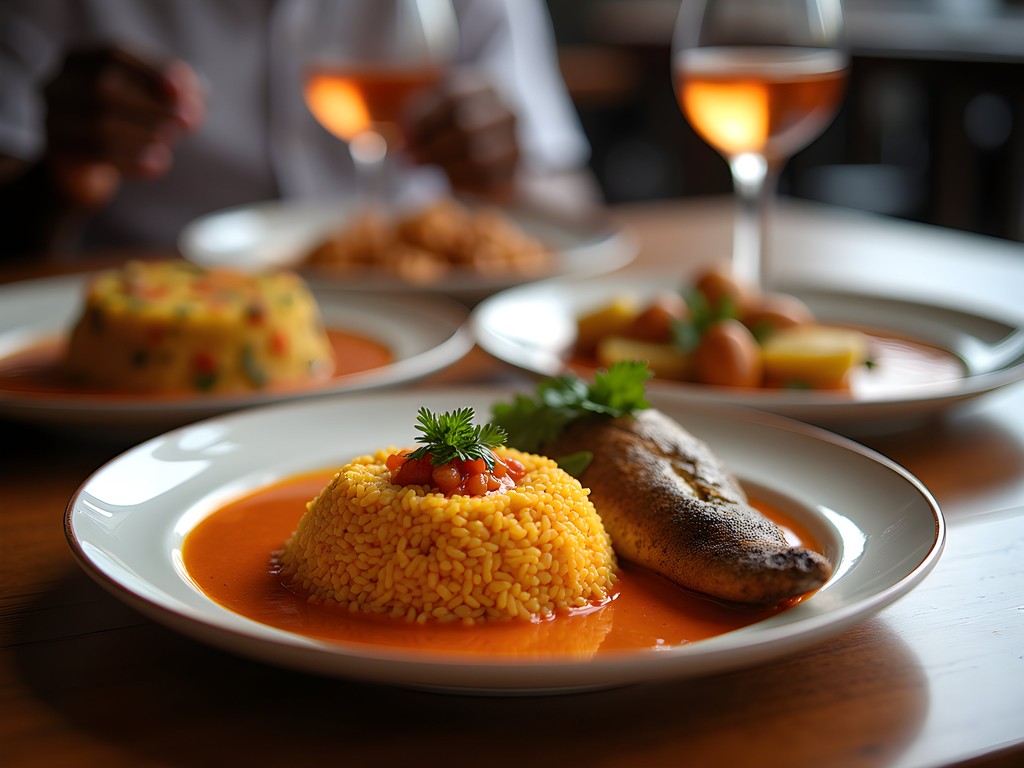
💡 Pro Tips
- Book the Thursday 'Taste of Nigeria' evening at least a week in advance
- Request the interactive cooking demonstration add-on for hands-on cultural learning
- Visit their art gallery before dinner—the exhibitions rotate monthly and feature contemporary Nigerian artists
Connect with Conservation at Lekki Conservation Centre
Just 30 minutes from the frenetic energy of downtown Lagos lies an unexpected oasis of biodiversity. The Lekki Conservation Centre protects one of the last remaining swamp forests in Nigeria—an ecosystem that once covered much of the coast before urban development. As someone whose wife has dedicated her career to conservation biology, I've developed an appreciation for these protected spaces that offer both ecological value and cultural significance.
The 78-hectare reserve features a remarkable 401-meter canopy walkway suspended 22 meters above the forest floor. Walking across its swaying planks provides a perspective few visitors to Lagos experience—the city viewed through a filter of indigenous trees rather than concrete and glass.
'This forest is our heritage library,' explained Nkechi, my guide and a conservation biologist. 'Each plant species represents a chapter in our traditional knowledge about medicine, food, and materials.'
What fascinated me most was learning how traditional games and sports in Nigeria often incorporated elements from these natural spaces. Children's games mimicked the movements of monkeys swinging through trees, while certain wrestling techniques drew inspiration from animal behaviors.
The reserve is home to mona monkeys, monitor lizards, and over 100 bird species. I spent a tranquil morning photographing hornbills and turacos from one of the observation platforms using my zoom lens, which proved perfect for wildlife photography without carrying excessive equipment.
Beyond wildlife viewing, the conservation center offers educational programs about Nigeria's environmental challenges and traditional ecological knowledge. I participated in a workshop on indigenous conservation practices, where elders from surrounding communities shared how traditional taboos and seasonal restrictions helped maintain ecosystem balance long before modern conservation science.
The center's efforts to involve local communities in conservation work—from employing guides from nearby villages to incorporating traditional knowledge into management plans—offers a model for sustainable tourism development that benefits both nature and culture.
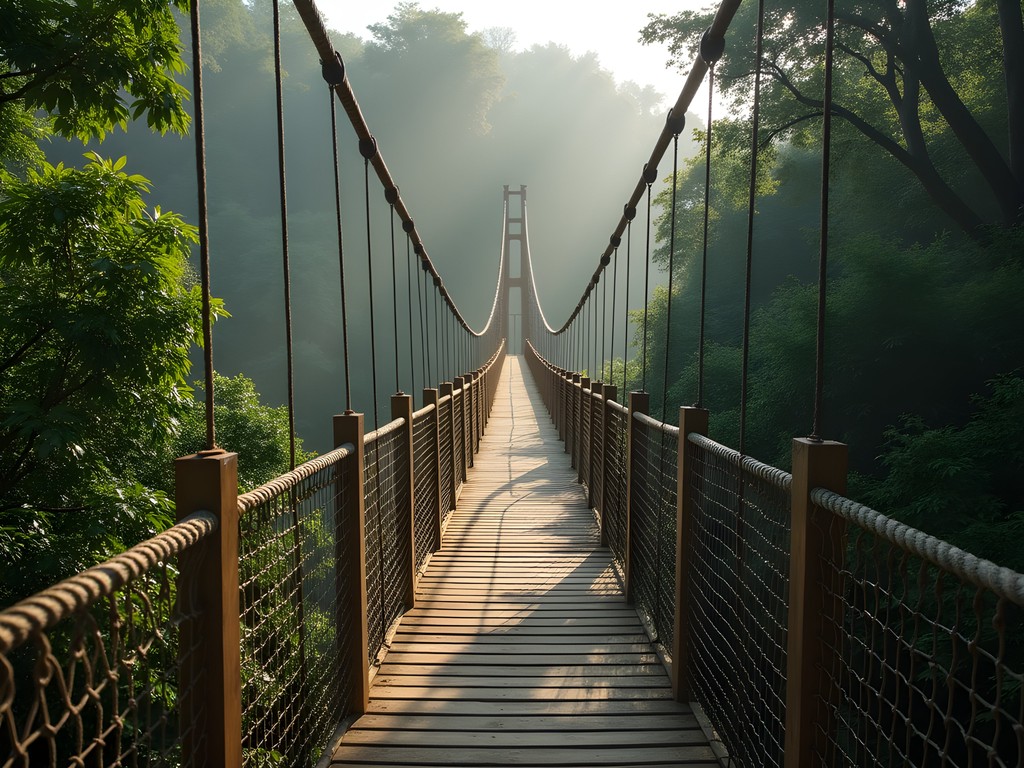
💡 Pro Tips
- Visit early morning (before 9am) for the best wildlife viewing opportunities and cooler temperatures
- Book the guided 'Indigenous Knowledge Tour' for insights into traditional ecological practices
- Wear closed shoes suitable for forest trails and bring insect repellent
Discover Contemporary Lagos at Terra Kulture
To understand Nigeria's cultural present and future—not just its past—Terra Kulture on Victoria Island serves as the perfect final stop on a cultural immersion journey. This arts and cultural center embodies the dynamic evolution of Nigerian identity through its gallery, theater, bookstore, and educational programming.
I spent my last day in Lagos attending a Sunday matinee performance of 'Saro: The Musical'—a contemporary production that traces the journey of four young men from rural Nigeria to Lagos, navigating themes of migration, identity, and urban transformation. The parallels to sporting narratives were striking: the underdog story, the quest for belonging, the tension between individual ambition and collective identity.
'Our traditional stories find new expression through contemporary art forms,' explained Brenda, the theater's artistic director, during a post-show discussion. 'Just as griots once preserved our history through oral tradition, today's playwrights and directors continue that work through new media.'
The gallery space showcases rotating exhibitions of contemporary Nigerian artists, many of whom blend traditional techniques with modern themes. During my visit, an exhibition explored environmental degradation in the Niger Delta through installations incorporating traditional fishing nets and modern industrial materials—a powerful commentary on ecological challenges facing Nigeria.
Terra Kulture's bookstore offers the most comprehensive collection of Nigerian literature and academic works I've found anywhere, including rare texts on traditional games and sporting practices. I purchased several books on indigenous Nigerian recreational activities that will inform my upcoming work on sporting traditions.
The center's restaurant serves elevated interpretations of Nigerian classics—I particularly recommend their seafood okra soup and modernized moi moi (steamed bean pudding)—making it possible to experience multiple facets of Nigerian culture in one location.
Check their website for current programming, as events change weekly. Sunday performances typically sell out in advance, so booking online is essential. The center also offers cultural workshops ranging from traditional dance to contemporary art techniques—perfect for travelers seeking hands-on learning experiences.
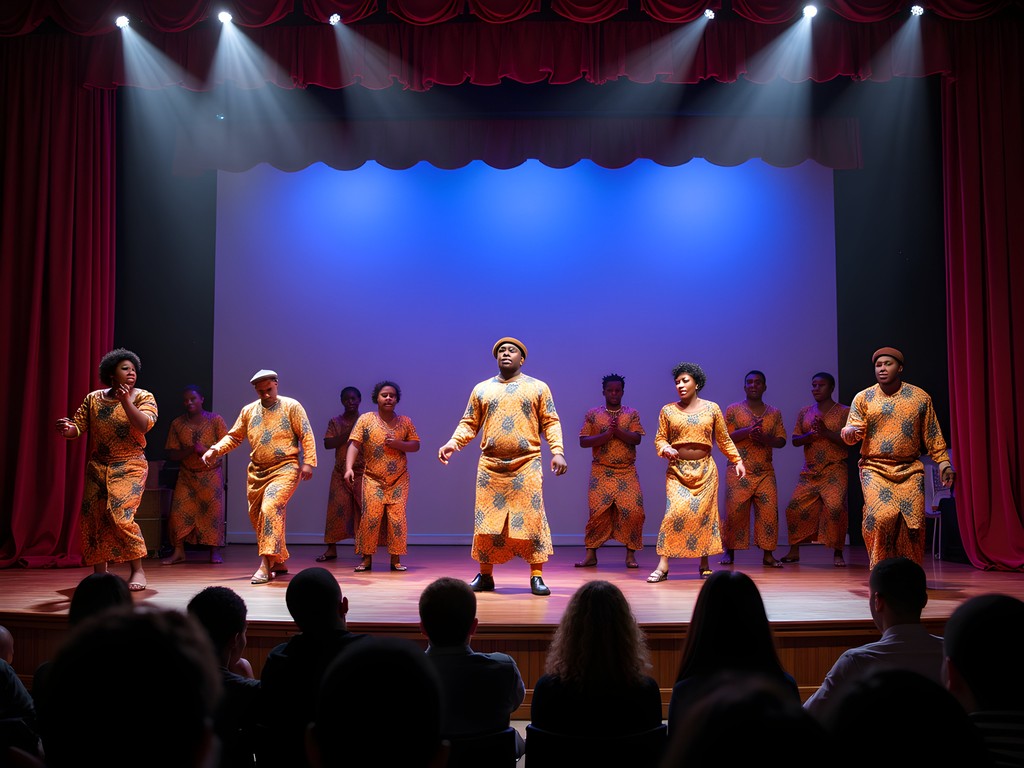
💡 Pro Tips
- Check their website calendar for special events like book readings and artist talks
- Sunday matinees offer the best opportunity to meet local arts enthusiasts during post-show discussions
- Visit the gallery first, then enjoy a performance, followed by dinner at their restaurant for a complete cultural experience
Final Thoughts
Lagos defies simple categorization—it's a city of profound contrasts where ancient traditions and hypermodern ambitions coexist in dynamic tension. Like the best sporting contests I've covered over my career, Lagos reveals its character through moments of both struggle and transcendence. The seven experiences I've shared offer more than tourist attractions; they provide windows into Nigeria's cultural soul and the resilience of its people. As you plan your own journey to this remarkable city, remember that cultural immersion requires both respect and participation. Ask questions, learn basic Yoruba phrases, and approach each interaction with genuine curiosity. Lagos will challenge your preconceptions and reward your engagement with memories that continue to resonate long after you've returned home. As they say in Nigeria, 'Eko o ni baje'—may Lagos never spoil.
✨ Key Takeaways
- Authentic cultural experiences in Lagos require venturing beyond tourist districts into community-based activities
- Conservation areas like Lekki provide insight into traditional ecological knowledge and Nigeria's biodiversity
- Contemporary arts venues showcase how traditional cultural elements are being reimagined by a new generation
- Participation rather than observation yields the most meaningful cultural connections in Lagos
📋 Practical Information
Best Time to Visit
November to February (dry season)
Budget Estimate
$100-150 USD per day for mid-range accommodations, meals, and activities
Recommended Duration
7 days minimum
Difficulty Level
Moderate
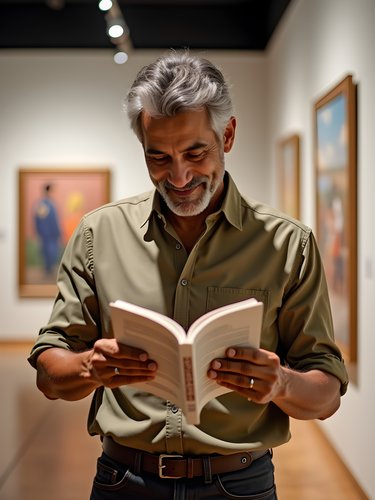
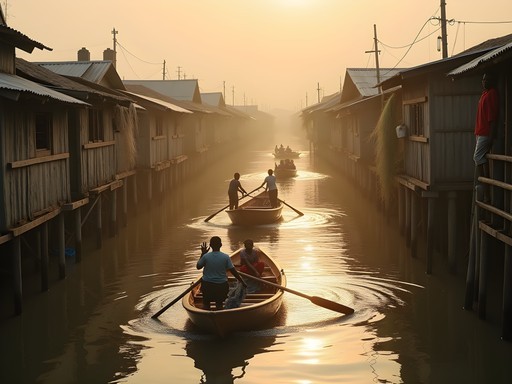








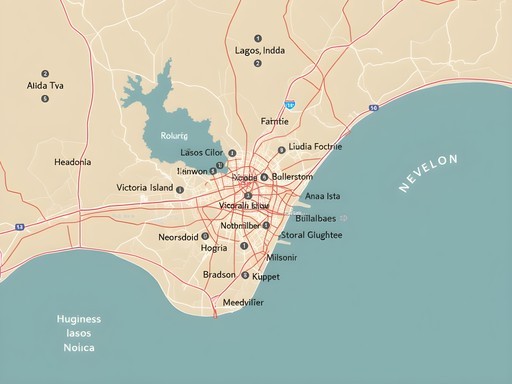
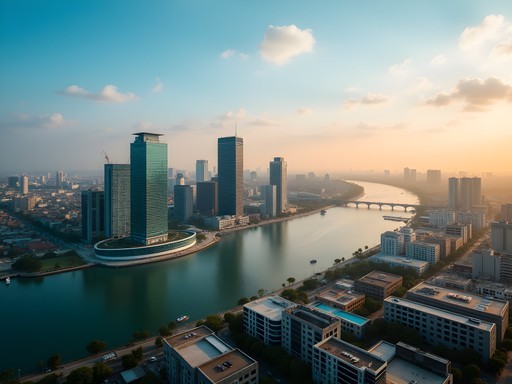
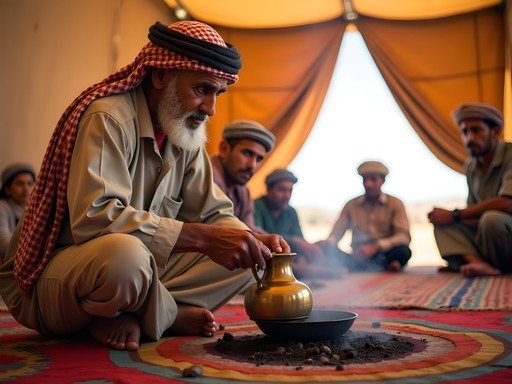
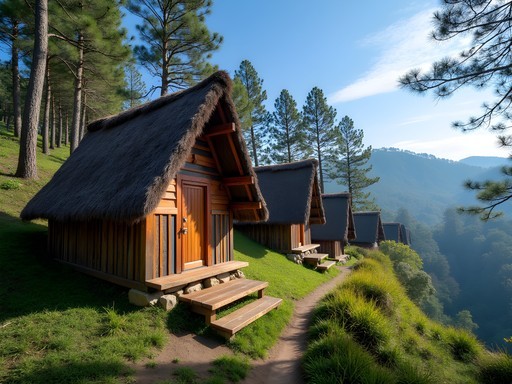
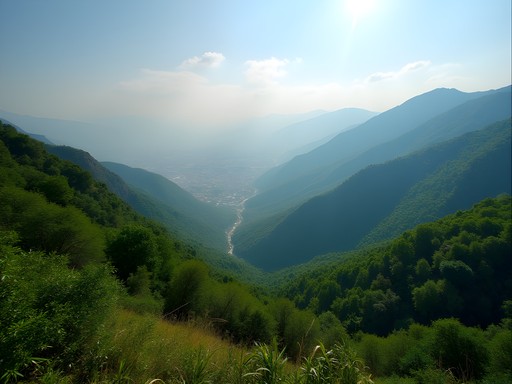
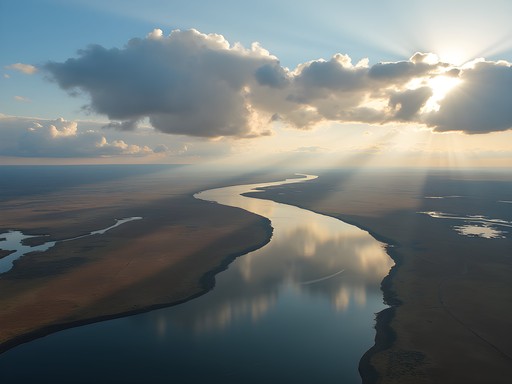
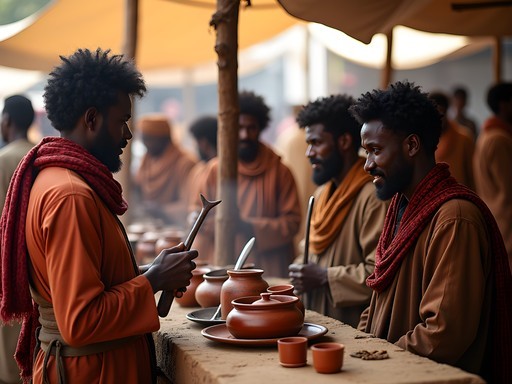
Comments
sunnyace
The New Afrika Shrine sounds amazing! Adding this to my list.
beachlegend
Right?? The live music scene there is supposed to be incredible!
dreamchamp
YES to all of this! I spent 3 weeks in Lagos last year and these are exactly the experiences that made it unforgettable. The textile section at Lekki Market is mind-blowing - I bought so much ankara fabric I had to buy an extra bag to get it all home lol. Also if you're going to the Shrine, bring cash and prepare to dance. No one sits still there! The connection to Fela Kuti's legacy is so powerful. You can really feel his spirit in that place. Lagos changed my whole perspective on West African culture.
nomadmate
How much cash should I bring for a night at the Shrine?
dreamchamp
Maybe 10-15k naira for entry, drinks, and tips. Prices are pretty reasonable!
Megan Martin
Excellent piece, Amit. I was in Lagos for a business conference last year and managed to squeeze in a visit to the New Afrika Shrine. Your description of it as the 'rhythmic soul of Nigeria' is spot-on. The live music, the atmosphere, the history - it's unlike anything else. One tip for business travelers: the Lekki Arts & Crafts Market is perfect for authentic gifts to bring back to colleagues. Just be prepared to negotiate prices - it's expected and part of the experience. The vendors are friendly and appreciate when you engage with the process.
winterlegend
Great post Amit! Quick question - when does the Eyo Festival typically happen? I've been to Lagos twice but never timed it right to catch this. Also, how easy is it to actually get to Makoko? I've heard mixed things about accessibility and whether tourists are really welcome there.
Megan Martin
Eyo Festival doesn't have fixed dates - it's held for special occasions and state events, so you really need to check local news when planning. I'd recommend connecting with a local guide for Makoko to ensure you're visiting respectfully.
winterlegend
Thanks Megan! That makes sense about the festival timing
smartone7393
Love the photos!
nomadmate
This is AMAZING!! The New Afrika Shrine looks absolutely incredible. Adding Lagos to my bucket list right now!
dreamchamp
The Shrine is unreal! Go on a Thursday or Friday night for the full experience. The energy is insane
moonnomad
Those photos of the floating village are incredible! Never seen anything like it before.
Claire Hawkins
We visited Lagos with our two teenagers last summer and it was eye-opening for all of us. The contrast Amit mentions is so real - one moment you're in ultra-modern Eko Atlantic, the next you're in centuries-old markets. For families considering Lagos: our kids were initially overwhelmed but ended up loving the Nike Art Gallery and the drumming workshop we found near Lekki. The food was a hit too! One tip I'd add to Amit's list: visit Tarkwa Bay for a day escape from the city intensity. It's accessible only by boat which adds to the adventure. Just bring everything you need for the day as facilities are limited.
nomadfan
If you're heading to Lekki Arts Market, bring cash and be ready to haggle! I got some amazing fabrics there but the initial prices were way high. Also worth bringing a portable luggage scale because you'll definitely buy more than planned!
tripgal
Planning a trip in August - is that a good time to see the Eyo Festival or does it happen at specific times?
waveone
The Eyo Festival doesn't run on a regular schedule - it's typically held to commemorate important events or honor notable figures. Check local event listings closer to your trip date!
Venture X
Premium card with 2X miles, $300 travel credit, Priority Pass